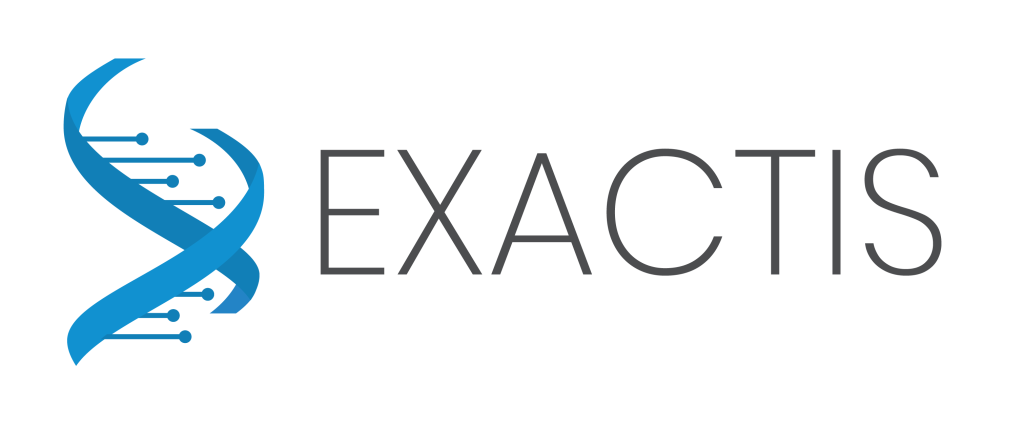NOUVELLES > Aller de l’avant : comment les coordonnateurs de PMT contribuent à accélérer la recherche sur le cancer
29 March 2023
Moving the needle forward
HOW PMT COORDINATORS ARE HELPING ACCELERATE CANCER RESEARCH
In May 2016, Lee-Anne Pickard, a nurse with close to 20 years of experience in cancer research, was sent an article from the Montreal Gazette. It outlined how Exactis had set up a pan-Canadian network to collect samples from patients for molecular testing in the hopes of matching them to clinical trials. It was her first introduction to Exactis and the “Personalize My Treatment” (PMT) databank. Fast-forward six years later and Lee-Anne is now officially part of the team as a PMT Coordinator at the London Health Sciences Centre (LHSC).
What are the main responsibilities of a PMT Coordinator?
My initial responsibility as a PMT Coordinator was to strategize with the medical oncology team on how to best implement the project to ensure that recruitment into the PMT registry would be successful at our centre. We rolled out PMT with one physician and have successfully grown it to involve three oncologists and are enrolling patients across four busy disease sites (breast, lung, GI and gynecology).
Another important responsibility has been to strategize our consent model. Opening PMT at our cancer centre in the middle of the COVID-19 pandemic presented quite a few challenges. We had many patients who were having their follow-up visits over the phone and not physically coming into our centre. Consenting patients to research studies required some creativity! I successfully implemented virtual consent through REDCap (a web-based tool for research databases) in addition to in-person consenting, to ensure that we could provide flexibility for our patients.
What is a typical day for you as a PMT Coordinator?
A typical day for me as a PMT Coordinator doesn’t exist. It’s always different, which is one of the things I appreciate the most about this role. Speaking generally though, I do have a number of tasks that I perform every day. Each day starts with marking patients’ charts in clinic, this ensures that the oncology teams are aware that patients are eligible for participation in the PMT registry. The medical oncologists will introduce the PMT registry to the patient and ask if the patient is willing to meet with me and hear more about PMT. The medical oncologist then emails or pages me to let me know that the patient is ready to be seen or lets me know that I can reach out to the patient by phone or for a virtual consent.
A good deal of time each day is spent talking to patients on the phone explaining the PMT registry and reviewing the electronic consents. Once patients have consented, they are registered in the PMT Portal and then data collection begins. The end of the day typically involves reviewing the following day’s clinic lists with the oncologists to determine their eligible patients and getting ready to start it all over again the next day.
What types of questions do patients have when enrolling in PMT?
My experience, working in cancer research for almost 20 years, has been that patients are very supportive of research projects, and if the study is minimally intrusive on their lives, they are even more keen to assist. Approaching patients for PMT has been no different. Patients are excited to participate in a pan-Canadian registry that is making a difference in the future of cancer care. As a result, few patients have concerns about participating in the registry, however, questions that I am more frequently asked typically relate to how we protect patients’ privacy, what is required of patients in terms of visits and samples, and finally how does the registry help others.
What do you like most about working as a PMT Coordinator?
It might sound cliché, but I really thrive off of the opportunity to help people. As a PMT Coordinator, I have the opportunity to contribute to a project larger than just our centre and thus have a greater influence on the cancer care landscape. I love having the opportunity to help our physicians contribute to research and feel fortunate to have the chance to help patients participate in research, which often helps patients find purpose in their cancer journey.
Recently, Exactis organized an in-person training session for PMT Coordinators. What did you learn at that meeting?
I really enjoyed the in-person training session for PMT Coordinators. It was the first opportunity I had to meet with the Exactis team in-person! After years of COVID-19 restrictions on social gatherings, it was so refreshing to travel and learn together in the same room. My most influential takeaway from that meeting was building relationships with the other PMT Coordinators from across Canada. I really felt like part of a network at that meeting. In terms of my specific learning, there were three big stand-out topics for me:
1. Where the future of the PMT registry is hoping to go and its potential for influencing healthcare decision-making;
2. Better understanding the molecular testing information we are collecting;
3. Learning about the new PMT Portal and the opportunity to practice case studies to improve my comfort and efficiency with entering patient data.
Want to learn more about our network and “Personalize My Treatment”? Click Here
